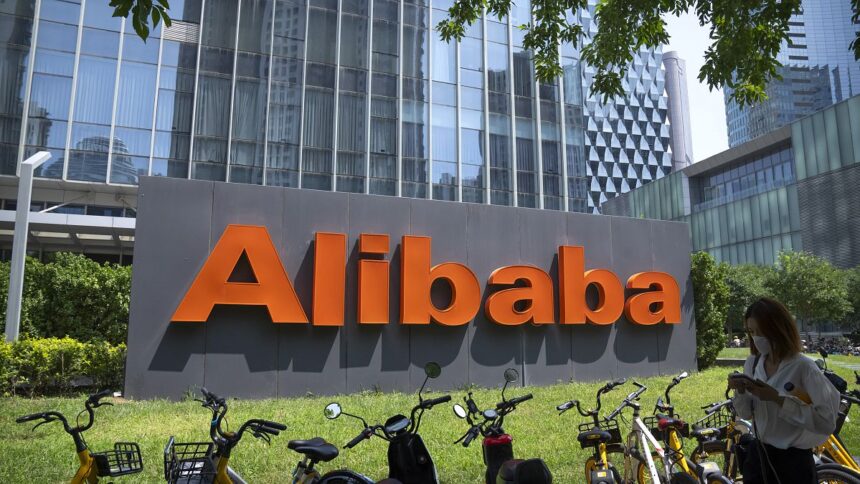Published: Tue, Dec 31, 2024 | Updated: 2 Hours Ago
Rising Competition in AI
In a bold move signaling the intensifying competition among Chinese tech giants, Alibaba has announced significant price reductions on its large language models (LLMs), specifically the visual language model Qwen-VL, slashing prices by up to an impressive 85%. This strategic pricing shift underscores Alibaba’s commitment to securing a larger market share in the rapidly growing artificial intelligence (AI) sector and highlights the fierce rivalry within China’s AI market as companies race to capitalize on emerging AI technologies.
Key Details: Alibaba’s Price Cuts
Alibaba Cloud, the tech giant’s cloud computing division, revealed these substantial price cuts on its WeChat platform, indicating a strategic focus on providing cost-effective AI solutions tailored to businesses. The Qwen-VL model is engineered for enhanced text and image comprehension, offering versatility for enterprises looking to leverage advanced AI capabilities.
This latest reduction in costs follows a series of previous price cuts throughout 2023, including a staggering 97% reduction announced in May, aimed at boosting demand among corporate clients. These ongoing initiatives demonstrate Alibaba’s proactive stance in an increasingly competitive landscape where other major players, such as Tencent, Baidu, JD.com, Huawei, and Bytedance (the parent company of TikTok), are also advancing their own AI products.
The Competitive Landscape of AI in China
As Alibaba slashes prices on large language models, the Chinese AI market is evolving rapidly. Leading firms have launched a variety of AI solutions in the past year and a half, reflecting the growing interest in generative AI. The surge in activity not only reinforces the global trend towards increased AI adoption but also promises innovative solutions that cater to both enterprise and consumer needs.
Alibaba’s Position in the AI Market
Despite the robust competition, Alibaba is strategically positioning itself toward enterprise solutions rather than targeting consumers directly. This approach has resulted in the Qwen models being deployed by over 90,000 enterprise users, showcasing the company’s focus on providing specialized applications that enhance business operations through effective AI.
Financial Metrics and QI Report Summary
Understanding the implications of these strategic maneuvers requires a review of key financial metrics. Although the latest quarterly earnings report (QI) was not disclosed in the initial news piece, trends indicate moderate stock price movements. On the last trading day of the year, Alibaba’s shares closed 0.5% higher, suggesting a cautious optimism among investors in light of these price cuts.
The consistent reductions, while aimed at increasing user engagement, could potentially lead to short-term revenue impacts yet strategically position the company for long-term growth in the burgeoning AI market.
Market Trends: A Deep Dive
The AI market in China is witnessing a significant influx of innovations and competition, reshaping the landscape of cloud computing and enterprise solutions. Key trends include:
- Aggressive Pricing Strategies: Companies are implementing aggressive pricing tactics to attract businesses seeking cost-effective AI solutions.
- AI Model Development: Tech firms are not only developing advanced large language models but also concentrating on specialized applications enhancing performance in sectors like finance, retail, and healthcare.
- Enterprise-Focused Solutions: Many firms, including Alibaba, focus their AI efforts on the enterprise sector, reflecting growing demand from businesses aiming to optimize operations.
- Global Collaboration and Innovation: There are increasing collaborative efforts between tech companies and academic institutions, promoting research and development in AI technologies.
- Regulatory Environment: The Chinese government continues to impact the AI landscape with policies regulating data use, AI ethics, and security measures, influencing corporate operations.
Conclusion: Alibaba’s Future in AI
As Alibaba slashes prices on large language models, the company’s strategy highlights its intent to lead amidst a competitive landscape. The significant efforts to attract enterprise clients through substantial cost reductions reflect a commitment to innovation and accessibility. With other tech giants also advancing their AI models, the race in the Chinese tech sector is set to intensify, promising exciting developments in the realm of artificial intelligence.
FAQ Section: Alibaba’s AI Price Cuts
- What is the significance of Alibaba slashing prices on large language models?
- The price cuts underscore Alibaba’s strategy to attract enterprise clients in a competitive AI market.
- What is the Qwen-VL model?
- Qwen-VL is Alibaba’s visual language model designed to integrate text and image comprehension.
- How much has Alibaba reduced prices on its models?
- Alibaba has announced price cuts of up to 85% on its large language models.
- Who are Alibaba’s main competitors in the AI market?
- Major competitors include Tencent, Baidu, JD.com, Huawei, and Bytedance.
- What previous price reductions has Alibaba implemented in 2023?
- Earlier in 2023, Alibaba reduced prices by as much as 97% for its Qwen AI model, along with a 55% cut on various cloud products.
- How many enterprise users have adopted Alibaba’s Qwen models?
- Over 90,000 enterprise users are utilizing Alibaba’s Qwen models.
- What future trends are expected in the AI market in China?
- Trends include aggressive pricing, innovation, a focus on enterprise solutions, and changes in the regulatory environment.
- How have Alibaba’s stock prices reacted to the price cuts?
- Following the announcement, Alibaba’s shares experienced a modest increase of 0.5%.
- Why is Alibaba focusing on enterprise solutions?
- Alibaba aims to meet growing demands from businesses seeking to enhance operations through effective AI applications.
- What role does the Chinese government play in the AI market?
- The government’s policies on data security, AI ethics, and industry standards significantly influence how companies operate.




